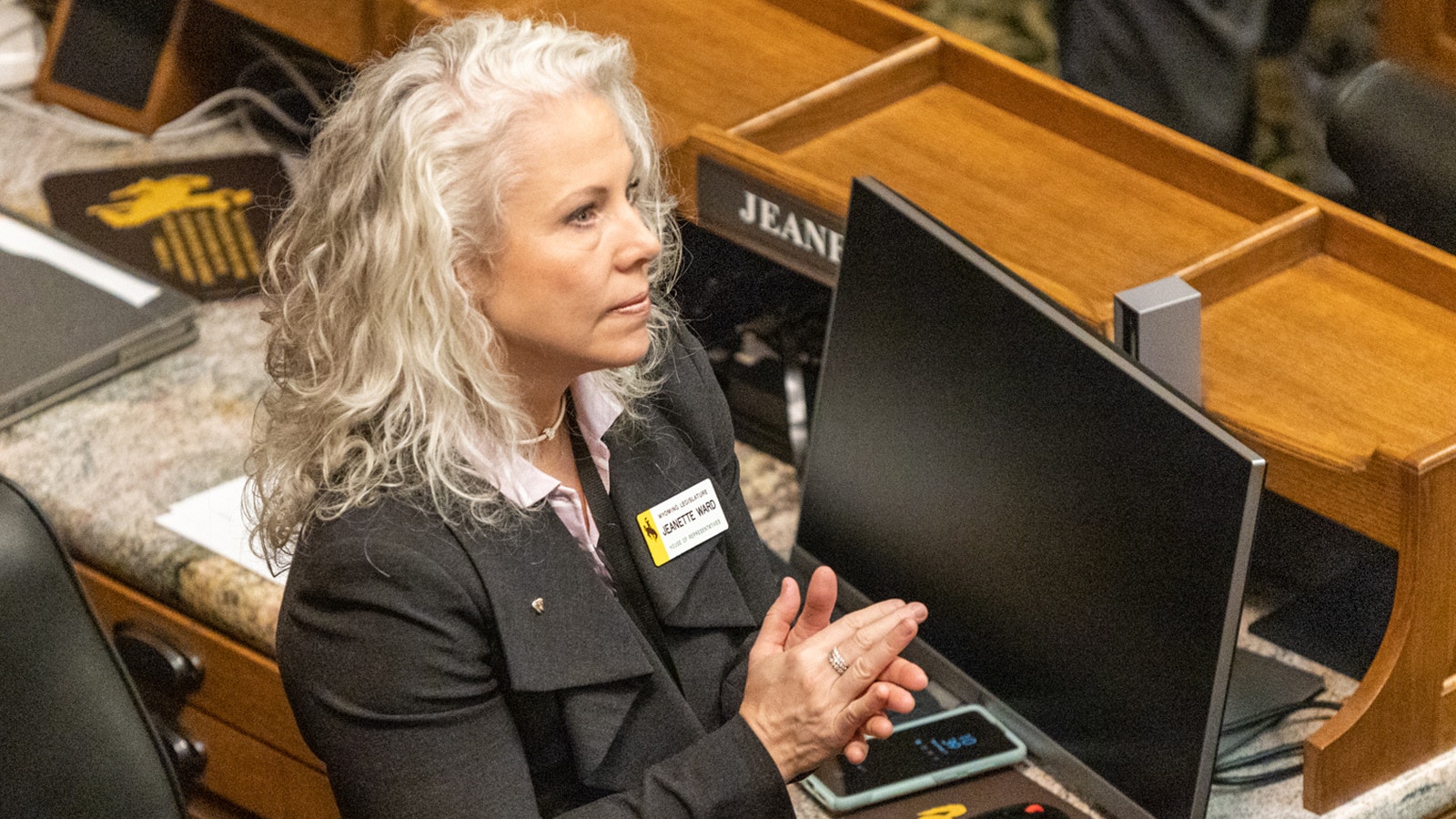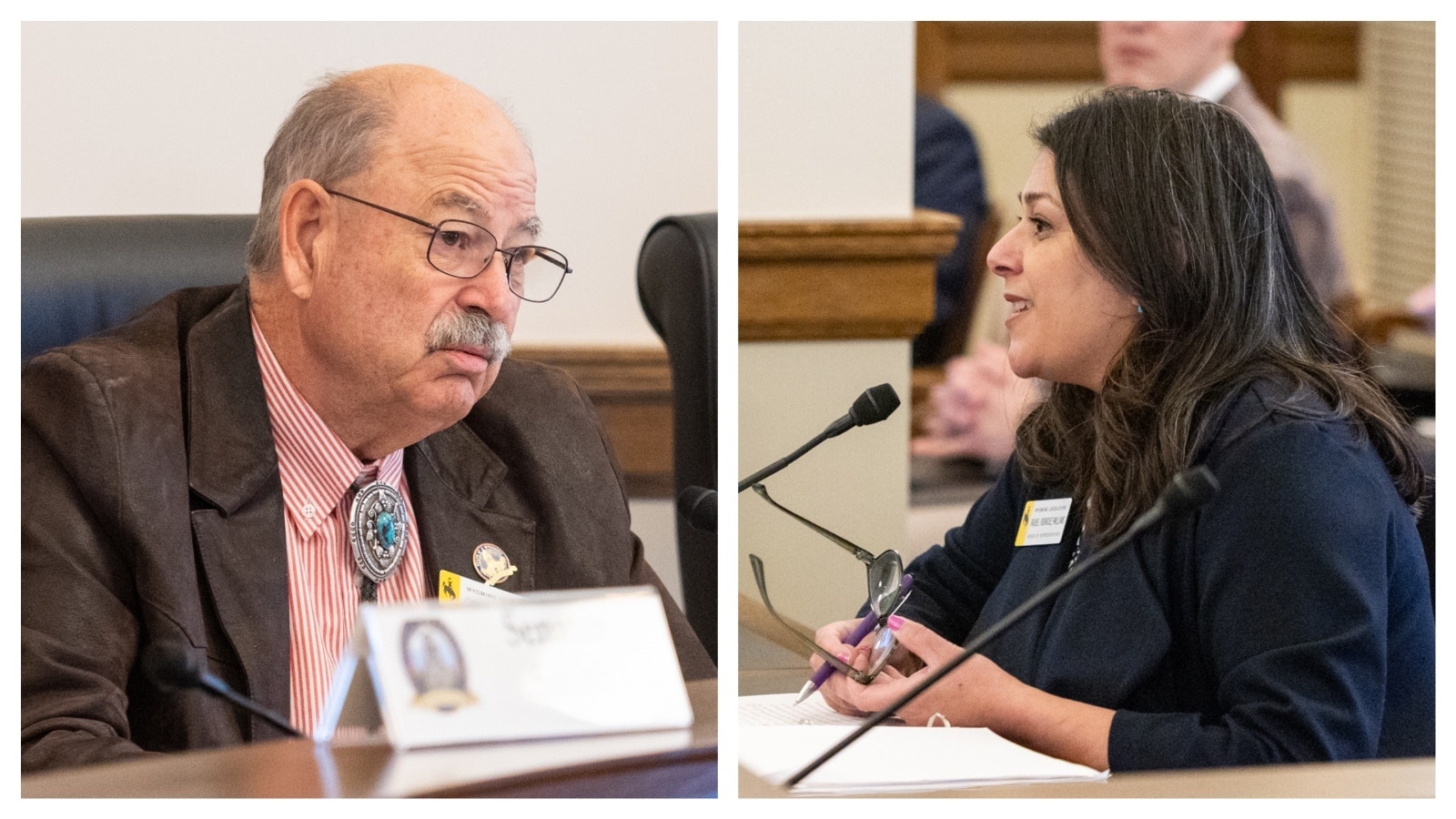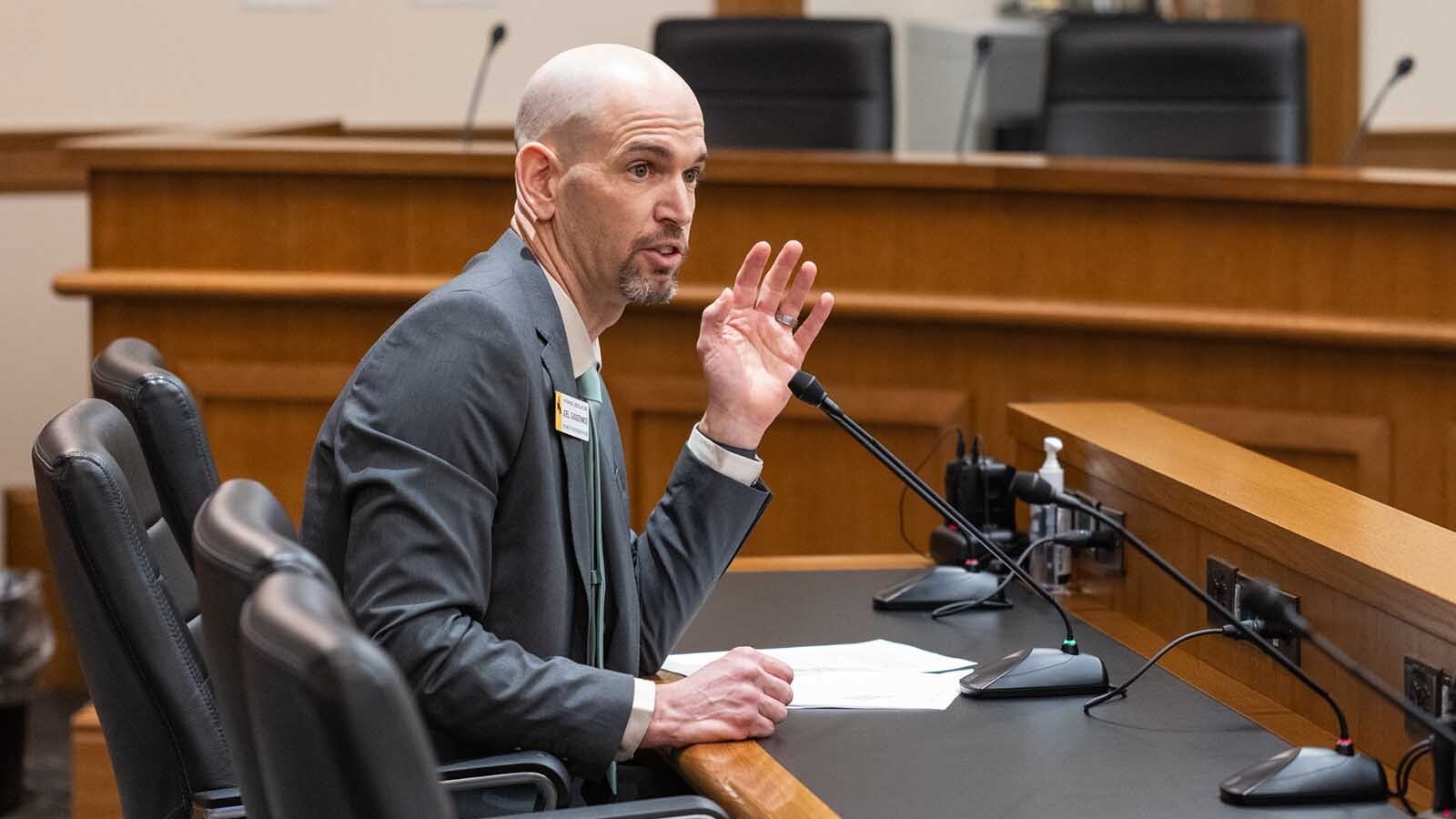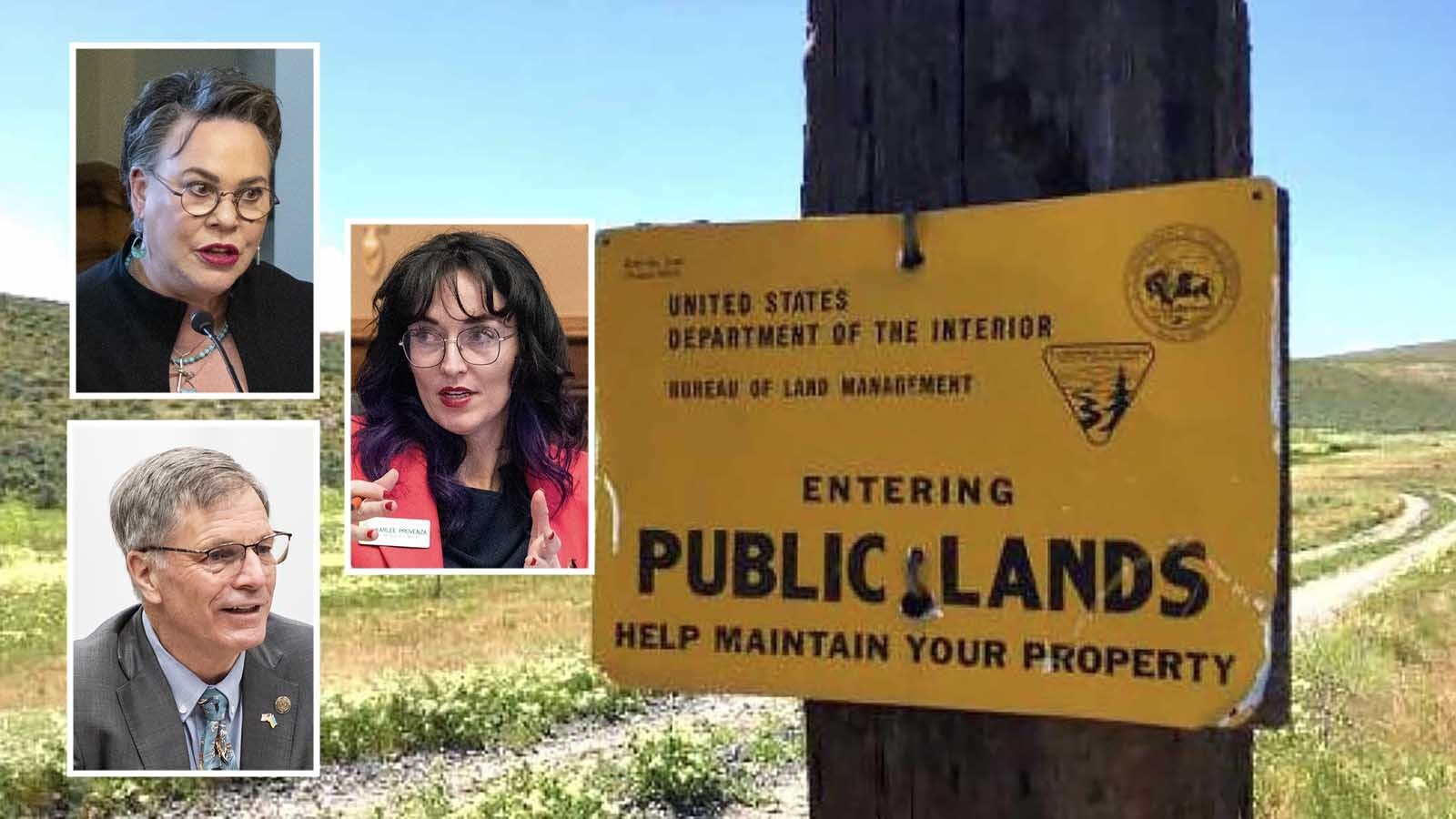Wyoming lawmakers this week shut down two proposed laws aimed at keeping obscenity out of public libraries and schools.
Detractors of both House Bill 87 and Senate File 177 said the bills took a severe approach to an issue that can be resolved locally.
Both proposed to repeal an exemption that protects librarians and educators from being charged criminally for disseminating obscenity.
The Senate Education Committee on Wednesday held back SF 177 for further discussion in the interim period between legislative sessions; the bill will not advance in the current session.
The House Revenue Committee on Thursday killed HB 87 on a 6-3 vote.
Tax Money And Porn
The debate follows controversies in multiple Wyoming libraries in schools regarding the availability of sexually explicit books to children.
Controversial Books ‘Gender Queer’ And ‘Trans Bodies’ Remain In Casper High School Library – Here’s What’s In Them – Cowboy State Daily
Rep. Jeanette Ward, R-Casper, sponsored HB 87, and said it’s designed to prevent public money from being spent on books that most Wyomingites would find obscene.
“This is an issue nationally and school boards, including in Wyoming, have not been responsive to concerns of parents,” said Ward during the House Revenue Committee meeting. “Reasonable people everywhere recognize these books as obscene, and reasonable people do not want their (tax) money to subsidize obscenity.”
People who disseminate obscene materials to adults and minors can face misdemeanor charges in Wyoming, but librarians and educators are exempt and cannot be charged. The law defines obscenity as materials the average person would find appeals to the prurient interest, describes sexual conduct in a patently offensive way and lacks serious literary, artistic, political or scientific value.

Scientific Value?
Sen. Cheri Steinmetz, R-Lingle, sponsored HB 87’s counterpart SF 177.
She told the Senate Education Committee on Thursday that she sought to repeal the exemption because it is simply unfair: it protects the ability of librarians and educators to disseminate obscenity but not authors, parents or anyone else in society.
Committee Chairman Sen. Charlie Scott, R-Casper, told Steinmetz the bill concerned him because he worried it would halt legitimate university research campaigns exploring the scientific, mental-health impacts of pornography exposure.
Researchers, said Scott, “are going to need to have access to the actual material so they know what the heck they’re studying.”
Steinmetz countered, saying that the definition of obscenity excludes materials with serious scientific value.
It was a portion of the definition Steinmetz highlighted several times while sparring with librarians and educators who came to testify against her bill. She questioned whether the detractors sought to defend sexually explicit materials that lack educational value.
Sex Education In Wyoming
Tate Mullen, government relations director for the Wyoming Education Association, criticized the bill in both committee hearings, saying it will trap educators between their state-ordered requirement of teaching age-appropriate sex education and the fear of criminal prosecution.
Steinmetz again questioned whether sex education materials would be considered obscene if they truly have scientific value.
Mullen said that different communities would evaluate sex education materials differently, which could create an arbitrary legal landscape for educators.
Wyoming’s obscenity law relies on contemporary community standards to define obscenity.
More Than A Year
Mullen also stressed that parents repulsed by certain books in their children’s schools can resolve that conflict through their local school boards.
“Local school boards across the state have implemented detailed and effective policies in regards to which materials are available in libraries and classrooms,” said Mullen.
He drew attention to a headline-catching controversy in the Natrona County School District in which the board responded to parents’ concerns by revising the district’s library policy and by restricting students’ access to two contested books on a parental opt-in basis.
Speakers defending HB 87 in the Revenue Committee pushed back on the local control argument, saying that it took the Natrona County School Board more than a year to address parents’ concerns with the books.
What Other Families Can Access
Rep. John Bear, R-Gillette, referenced the roughly two-year struggle in his community when parents tried to get explicit books moved out of the public library’s children’s section.
After ‘Sexualization’ Controversy, Gillette Public Library Cuts Ties With American Library Association – Cowboy State Daily
Gillette residents reported librarians for disseminating obscenity in that case, but the assigned prosecutor declined to file charges, citing both the library and educator exemption, and the possible scientific value of the books in question.
Wyoming Library Association President Conrrado Saldivar told the House Revenue Committee that no books in Wyoming’s libraries have been deemed obscene under the law.
But Saldivar opposed the bill, saying parents can opt their children out of accessing certain books in libraries, but shouldn’t have the right to control what other families can access.
“What’s right for one parent may not be right for another, and vice versa,” said Saldivar.
Grindr App
Kathy Scigliano, chairwoman for the Laramie County Moms for Liberty, said the bill would deter librarians from ordering books that make schools more liable to lawsuit.
Scigliano referenced “This Book Is Gay” – a manual for gay youth that discusses sexual activity and dating – which she said is in the South Side High School in Laramie County. The book also is available in many libraries and other schools throughout the states, and was one of the contested books in the library controversy in Gillette.
The book instructs readers how to download and use Grindr, a homosexual hookup application for smartphones, Scigliano said.
“Having a book in school libraries in particular that tells kids how to download … Grindr, I think for a school that would be a liability,” said Scigliano.
Scigliano said that if a minor downloaded and used the Grindr app by following a school library book’s instruction, then got entangled with a sex predator because of the app, it could be a liability for the school.
“If my child was handed a book that (explained) an app and how to download it … and something happened to him, I would be suing that school district,” she said.
Rep. Ember Oakley, R-Riverton, questioned whether allowing criminal prosecution of librarians is the right answer.
“Do you believe then, that communities can get together and have this conversation, and this can be left to a local control option?” Oakley asked Scigliano.
Scigliano said that would have been desirable if school boards’ book challenge review panels included people on both sides of the issue, but she said many parents are left out of those panels.
The Ayes
Rep. Tony Locke, R-Casper, voted aye on HB 87, saying Wyoming should not be protecting its librarians more than it protects its children and that parents should retain the right to determine the extent of their children’s exposure to sex.
Bear agreed, saying the bill does contain a local control provision, because obscenity is only chargeable if contemporary community standards hold that a thing is obscene.
The third aye vote came from Rep. Tomi Strock, R-Douglas, who said the repeal would give the law just enough teeth to make librarians review books more carefully before ordering.
The Nays
Six committee members voted against the repeal.
Rep. David Northrup, R-Powell, said the repeal is the wrong way to address the issue, which he believes is being handled at most local school boards currently.
Rep. Andrew Byron, R-Jackson, agreed, saying the repeal would criminalize “with some pretty serious consequences, people that are trying to do their jobs.”
Byron was especially concerned about university and museum staffers who would be newly chargeable if the repeal had passed.
Rep. Dan Zwonitzer, R-Cheyenne, held up what appeared to be a copy of “This Book Is Gay,” saying if librarians faced a possible year in jail for each time it had been checked out, they could face 14 years in jail on obscenity charges.
“And I don’t think that’s appropriate,” he said.
Oakley voted against the bill, saying she was “disappointed and concerned about the direction of this bill” because it would bring the “big hand of government” to bear on a local issue.
Committee Chairman Rep. Steve Harshman, R-Casper, had expressed concern in the meeting about the two contested books in the Natrona County School District, saying they did not belong in the schools.
But Harshman also voted against the bill, saying controversies are better handled in local communities.
Rep. Liz Storer, D-Jackson, voted against the bill but did not voice her reasoning.





